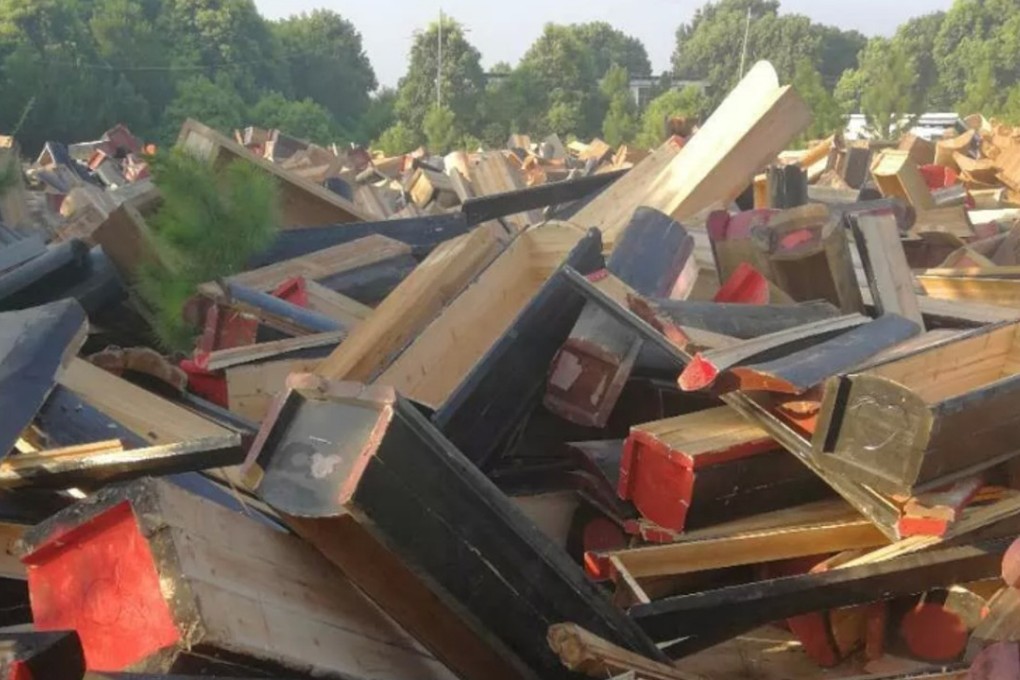Coffins smashed, seized, exhumed in China as province bans burials to save land
Authorities in southeast Jiangxi province say ‘cremation only’ regulations will preserve land resources, but heavy-handed policy draws criticism even from state media

A campaign banning people in a southeast China province from burying their dead that has seen coffins smashed and exhumed – all to preserve land resources – has stirred anger and resentment among locals, with even state media describing it as “barbaric and unpopular”.
Under a “zero burial” policy introduced about six months ago, authorities in rural regions of Jiangxi province have waged war on the traditional practice, going so far as to seize or destroy coffins that many poor families have spent their lives saving up to buy.
The Jiangxi government’s aim is to make cremation the sole approved method of disposing of people’s remains. Intended as a way to save land and to discourage extravagant burial ceremonies, authorities in many cities across the province have set a deadline of September for becoming “cremation only”.
In photographs and videos shared on Chinese social media over the weekend, officials were seen entering villages in the cities of Ganzhou, Jian and Yichun and forcibly removing coffins from people’s homes.